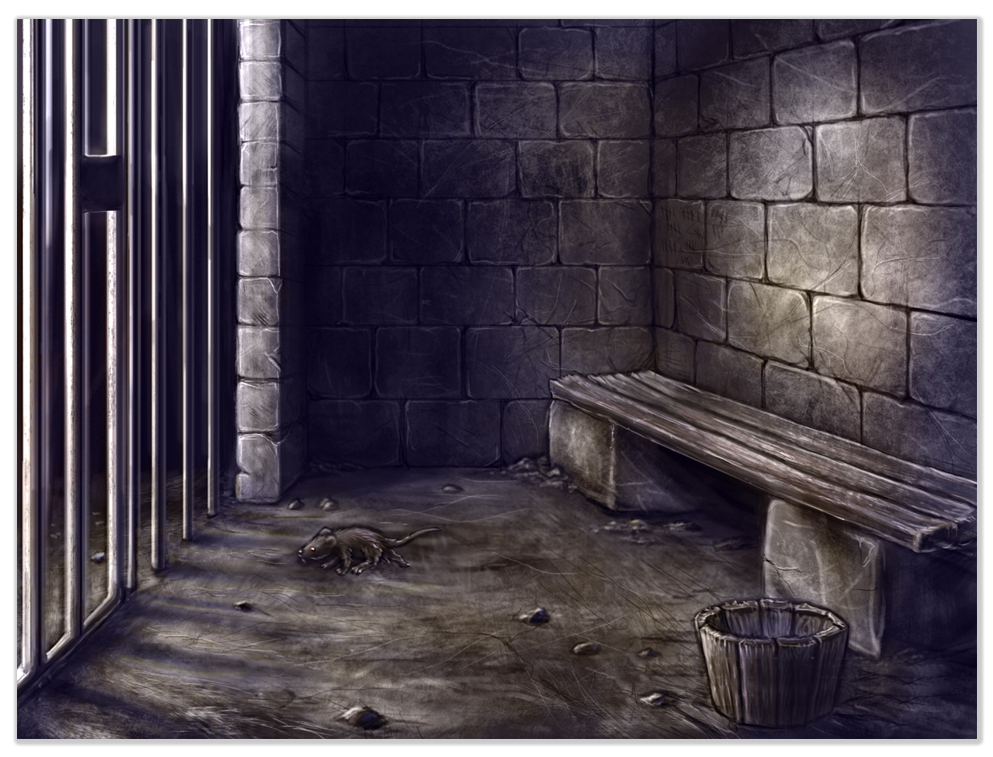We post news and comment on federal criminal justice issues, focused primarily on trial and post-conviction matters, legislative initiatives, and sentencing issues.

DEPT OF JUSTICE BLASTS BOP NEGLIGENCE IN PREVENTING INMATE DEATHS
 Chronic failures by the Federal Bureau of Prisons have contributed to the deaths of hundreds of inmates, the Dept of Justice’s Inspector General concluded last Thursday in a report that CNN called “blistering.”
Chronic failures by the Federal Bureau of Prisons have contributed to the deaths of hundreds of inmates, the Dept of Justice’s Inspector General concluded last Thursday in a report that CNN called “blistering.”
The Report found that
a combination of recurring policy violations and operational failures contributed to inmate suicides, which accounted for more than half of the 344 inmate deaths reviewed. We identified deficiencies in staff completion of inmate assessments, which prevented some institutions from adequately addressing inmate suicide risks. We also found potentially inappropriate Mental Health Care Level assignments for some inmates who later died by suicide. More than half of the inmates who died by suicide were single-celled, or housed in a cell alone, which increases inmate suicide risk.
DOJ Inspector General Michael Horowitz said, “Today’s report identified numerous operational and managerial deficiencies, which created unsafe conditions prior to and at the time of a number of these deaths.
The media were more savage: “A combination of negligence, operational failures and a blundering workforce has contributed to hundreds of inmate deaths in federal custody,” The Washington Post wrote.
CNN said that
For years, the embattled Bureau of Prisons has been the subject of accusations by politicians, prisoner advocacy groups for mistreating or neglecting inmates.
The Justice Department itself has issued scathing rebukes against BOP, outlining serious mistakes that have led to the deaths of high-profile inmates like notorious Boston gangster and convicted murderer James “Whitey” Bulger, who was killed shortly after being transferred to a new prison, and financier Jeffrey Epstein, who died by suicide in his jail cell.
But the circumstances that led to Bulger and Epstein’s deaths are emblematic of wide-ranging and recurring issues within the federal prison system that affect hundreds of inmates across the country, the DOJ’s Office of Inspector General found in its report that outlined a system in crisis failing to protect its charges.
NPR was terser: “The BOP is a mess.”
Many of the Report’s findings have applicability beyond the suicide issue. The IG said that “some institution staff failed to coordinate efforts across departments to provide necessary treatment or follow-up with inmates in distress.” Staff deficiencies in responding to medical emergencies “ranged from a lack of urgency in responding, failure to bring or use appropriate emergency equipment, unclear radio communications, and issues with naloxone administration in opioid overdose cases.”
 The Report found deficiencies extended to after-action documentation. “The BOP was unable to produce documents required by its own policies in the event of an inmate death for many of the inmate deaths we reviewed,” the Report said. “The BOP requires in-depth After-Action Reviews only following inmate suicides but not for inmate homicides or deaths resulting from accidents and unknown factors. The BOP’s ability to fully understand the circumstances that led to inmate deaths and to identify steps that may help prevent future deaths is therefore limited.”
The Report found deficiencies extended to after-action documentation. “The BOP was unable to produce documents required by its own policies in the event of an inmate death for many of the inmate deaths we reviewed,” the Report said. “The BOP requires in-depth After-Action Reviews only following inmate suicides but not for inmate homicides or deaths resulting from accidents and unknown factors. The BOP’s ability to fully understand the circumstances that led to inmate deaths and to identify steps that may help prevent future deaths is therefore limited.”
The Report examined four categories of BOP non-medical deaths between 2014 and 2021, suicide, homicide, accident, and unknown factors (where the BOP could not determine the cause of death). Of the 344 non-medical deaths during that time period, 54% were suicides, 26% were homicides, 16% were accidents. Under four percent were from unknown factors. Most of the suicides occurred when inmates were locked up in single cells.
The BOP’s non-medical death count climbed 68% between 2014 and 2021 while the prison population fell 27%. In 2014, there were 38 inmate deaths by unnatural causes. In 2021, that number was 57 inmates.
The Report noted that the BOP has policies in place to prevent inmate suicides. But it found “numerous instances of potentially inappropriate” mental health assessments for inmates who later killed themselves. What’s more, BOP staff “did not sufficiently conduct required inmate rounds or counts in over a third of inmate suicides,” and they sometimes “failed to communicate with each other and coordinate efforts across departments to provide necessary treatment or follow-up with inmates in distress,” the Report found.
Many BOP facilities failed to run suicide drills mandated by policy (required three times a year, once for each shift), the Report said. Thirty-five percent of BOP facilities “were unable to provide evidence that they conducted a single mock suicide drill from 2018 through 2020.”
 In one suicide case cited by the Report, BOP staff claimed to have searched a cell three times — including the day before the suicide — but found no contraband. After the prisoner died by a self-inflicted overdose, a search of the cell he had been in turned up 1,000 pills, the IG said.
In one suicide case cited by the Report, BOP staff claimed to have searched a cell three times — including the day before the suicide — but found no contraband. After the prisoner died by a self-inflicted overdose, a search of the cell he had been in turned up 1,000 pills, the IG said.
The BOP continues to grapple with a severe staffing shortage, ‘which has a ripple effect across the agency’s institutions,” NBC said. Correctional Officers work multiple shifts and healthcare workers are “augmented” to serve as COs, being pulled from their regular duties. “That translates into less mental health care for inmates,” NPR reported.
“At one facility,” Government Executive reported, “psychiatric staff were reassigned daily for two months straight. In another case, a facility did not have any psychological services personnel on staff… Half of [one] facility’s nursing positions were unfilled. At another facility, employees worked double shifts for three consecutive days. Personnel on staff are often undertrained, the IG found, with the bureau’s after-action reviews identifying insufficient training as an issue in 42% of deaths. They are also improperly disciplined, with employees themselves telling the IG the process was too lengthy and ineffective.
The BOP continues to struggle to keep facilities free of contraband drugs and weapons, which contributed to nearly a third of inmate deaths in the Report.
Sen Richard Durbin (D-IL), chairman of the Senate Judiciary Committee, has scheduled BOP Director Colette Peters and DOJ Inspector General Horowitz to testify on February 28th in a Committee hearing focused on federal inmate deaths.
“It is deeply disturbing that today’s report found that the majority of BOP’s non-medical deaths in custody could have been prevented or mitigated by greater compliance with BOP policy, better staffing, and increased mental health and substance abuse treatment,” Durbin said in a statement. “Accountability across the Bureau is necessary and long overdue.”
The IG recommended several changes to BOP procedure, including developing strategies to ensure that inmate mental health is properly evaluated, that prison staff is taught to use defibrillators and naloxone, and to develop procedures that require inmate death records to be consistently prepared.
A BOP spokesperson told CNN last week that the agency “acknowledges and concurs with the need for improvements” and is “dedicated to implementing these changes to ensure the safety and well-being of those in our custody.”
Sure it is, provided its staff isn’t being asked to make rounds, conduct drills or fill out reports.
CNN, DOJ watchdog report finds chronic failures by Bureau of Prisons contributed to the deaths of hundreds of inmates (February 15, 2024)
Dept of Justice, DOJ OIG Releases Report on Issues Surrounding Inmate Deaths in Federal Bureau of Prisons Institutions (February 15, 2024)
NPR, DOJ watchdog finds 187 inmate suicides in federal prisons over 8-year period (February 15, 2024)
Government Executive, Understaffing and mismanagement contributed to hundreds of deaths in federal prisons (February 16, 2024)
NBC, Bureau of Prisons failed to prevent nearly 200 deaths by suicide, DOJ watchdog finds (February 15, 2024)
Washington Post, IG report finds deadly culture of negligence and staffing issues at federal prisons (February 15, 2024)
– Thomas L. Root




























